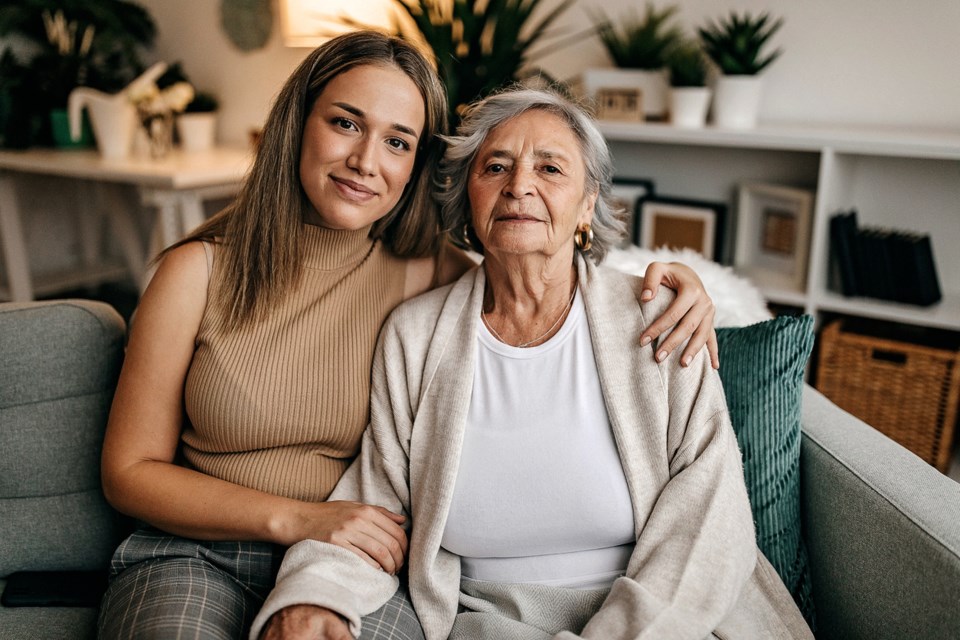Drinking plenty of water, getting out into the fresh air and ensuring consistent physical activity are tenets of good health at any age.
The importance behind those elements of care, however, increase exponentially as we grow older.
And those very same lifestyle tips are especially critical to the well-being of our parents and grandparents if they are susceptible in any way to dementia.
Kristina Van Der Zwan is the community centre manager and life enrichment leader at The Village Langley, a community unlike any other in Canada for those living with dementia or other associated conditions.
Given Van Der Zwan’s experience caring for and understanding the needs of our elderly loved ones, she’s providing tips for family members as they embark on the dementia journey.
But first, some statistics and facts according to the most recent numbers from the federal government issued in 2017.
- More than 402,000 seniors 65 years and older are living with dementia in Canada (excluding Saskatchewan).
- About two-thirds of Canadian seniors living with dementia are women.
- There are approximately 76,000 new cases of dementia diagnosed in Canada annually.
- The causes of dementia are not all specifically known and there is currently no cure for Alzheimer's disease, the most common type of dementia. Risk factors such as age, sex and genetics are associated with the development of dementia.
According to Van Der Zwan, the early stages of dementia can include a host of clues:
- Increased impairment of learning or short-term memory loss
- A decrease in vocabulary or word fluency
- Everyday tasks being forgotten (paying regularly scheduled bills, for example)
- Avoiding social situations
- Failing to recognize otherwise familiar friends or family
- Changes in executive movement or vision
“The important thing is to remember to look at the collection of symptoms versus one singular element,” Van Der Zwan says. “It’s not enough to just say, ‘Oh mom forgot to pay the bills and it’s because she’s getting older.’ Dementia is not a normal part of aging and it is not expected.”
The symptoms must be monitored carefully after they’re initially noticed. Consider getting your loved one added assistance – a gardener or cleaner, for example – and ensure regular, nutritious meals along with consistent exercise.
Once a dementia-related diagnosis is confirmed, however, Van Der Zwan recommends the following:
1. Talk about end-of-life considerations, such as estate planning or funeral options.
“When those conversations don’t happen, the individual’s interests do not get represented,” Van Der Zwan says. “As difficult as that sounds, it needs to happen.”
2. Establish your loved one’s needs on a go-forward basis.
Make a plan together, whether that means remaining at home or moving into community care.
3. Explore opportunities for communities your loved one may be interested in living in.
“Doing this earlier than later is really important because you want your loved one to at least direct what that looks like for them if a care community is the next step,” Van Der Zwan says.
4. Look at potential medications.
Explore medications that will support the slowing or progression of dementia and have a physician conduct a cognitive assessment.
5. Ensure your loved one is physically active and socially connected.
Drink lots of water, maintain creative abilities and incorporate as many aspects of healthy living as possible.
6. Be sure your family has help.
Reach out to the Alzheimer Society of B.C. or other organizations that offer caregiver or individual support.
7. As a caregiver or family member, always remember to practice self-care.
Take opportunities to address your domains of health – social, emotional, cognitive, spiritual and physical – in whichever manner necessary in order to manage your health and retain your own identity.
“There are times where you think you’re the only one who can give the best care to your parents and that’s probably true,” Van Der Zwan says. “But you need to let go of some things so you’re not alone and can create opportunities for you and your loved ones to have moments of joy.”
For more information about services and supports related to dementia, visit www.alzheimer.ca/bc or contact The Village Langley at www.thevillagelangley.com.



